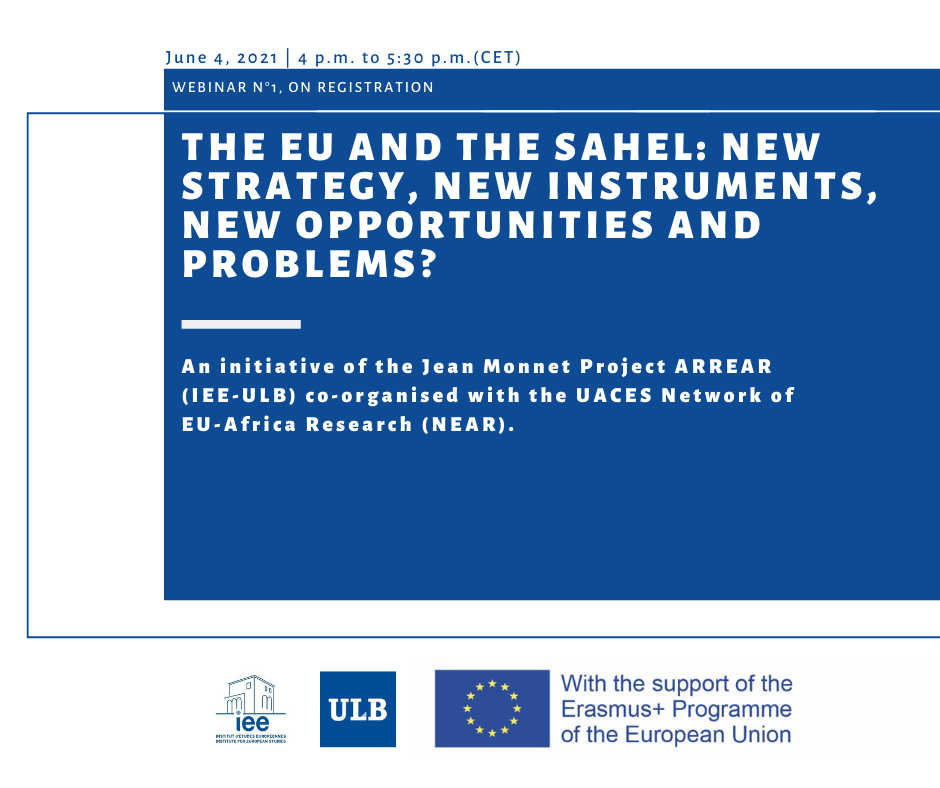Webinar series : Trends of convergence and divergence in EU-Africa relations
In recent years, Africa has made significant progress in regional integration, in particular with the creation of a continental free trade area, the regionalization of conflict management and an increased capacity of regional institutions, such as the African Union (AU). Meanwhile, longstanding relationships such as with the Organization of Africa, Caribbean and Pacific States (OACPS) or between the Eurozone and the CFA Franc zone are under pressure to adapt. These developments have important implications for the relationship between the European Union (EU) and Africa and have let to new strategies and instruments in a wide range of fields, from trade to security. Yet, the overall direction of the revolving interregional relations is not always evident, not least because both Africa and Europe are suffering from internal divisions.
In order to address the ongoing contemporary and complexity of EU-Africa relations, a short series of webinars will address trends of convergence and divergence in three layers: security cooperation in the Sahel, aid and trade in the post-Cotonou era and interregional coalitions. The objective of these virtual events is to bring together experts that discuss their respective perspectives on how Euro-African relations are evolving in light of the profound changes occurring on both sides.
The webinar series also constitutes a preparatory event for a larger academic symposium and policy dialogue on EU-Africa relations, envisaged to take place in Brussels later this year. The initiative is part of the Jean Monnet Project “A reassessment of relations between the EU and African regionalisms (ARREAR)” coordinated at the Institute for European Studies of the Université libre de Bruxelles (IEE-ULB) and co-organised with the UACES Network of EU-Africa Research (NEAR).
Webinar 1 : The EU and the Sahel, new strategy, new instruments, new opportunities and problems?
-10 years after, how has the Sahel Strategy of the EU evolved? How did the objectives and the means of action changed?
-What are the strengths and weaknesses of the EU action in the Sahel?
-Should the G5 Sahel still be the privileged partner and how does the APSA fit in the EU’s engagement?
-Are human rights issues going to be a problem for the EU’s engagement?
-What are the new possibilities opened, and potential problems posed by the European Peace Facility for the EU action in the Sahel and, more broadly, on the African continent?
Speakers:
- Pierre-Yves Boissy, Coordinator/Head of the Secretariat of the Partnership for Security and Stability in the Sahel (P3S), European External Action Service
- Signe Marie Cold-Ravnkilde, Senior Researcher, Danish Institute for International Studies
- Delina Goxho, Associate Fellow, Egmont – Royal Institute for International Relations
- Andrew Lebovich, Policy Fellow, European Council on Foreign Relations
- Bernardo Venturi, Associate Fellow, Istituto Affari Internazionali & Director of the Agency for Peacebuilding
Practical information for webinar n°1 :
When ? June 4, 2021 from 4 p.m. to 5:30 p.m. (CET)
Where ? Online
If you want to sign up for the second part (webinar n°2) :
Registration
Registration for this event is complete.
